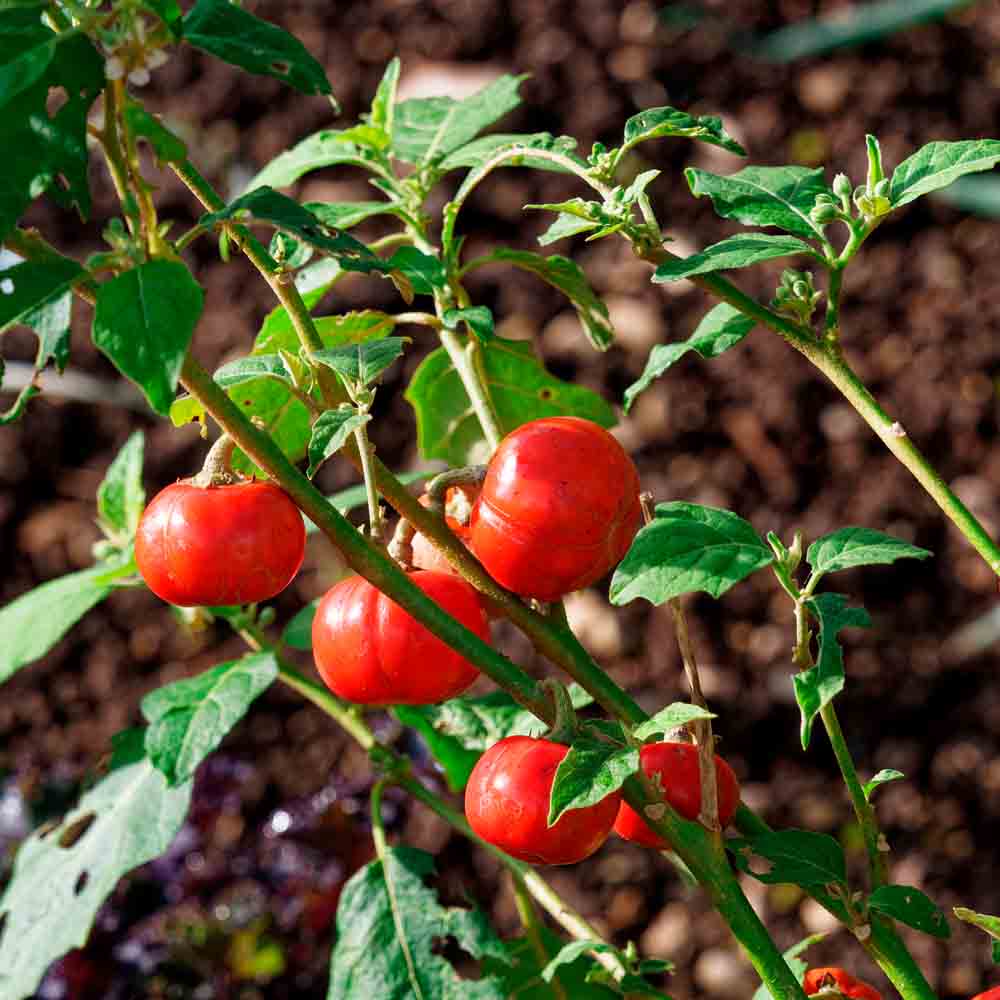AFRICAN EGGPLANT GOYO KUMBA AB
Solanum aethiopicum
An old African variety , mainly grown for its ornamental appearance, reaching 1 m in height and bearing an abundance of flowers , then beautiful round , red , ribbed fruits like small pumpkins . Late ripening (90 - 100 days).
Successful Eggplant Sowing
Sow in a pot of fine seed compost in March/April on a warm bed (25°C constant) indoors or in a heated greenhouse. Cover the seeds with a few mm of seed compost then press down. Place the pots near a window .
Lightly water the surface if the soil dries out.
Planting Eggplants
Transplant young plants measuring 15 cm in open ground at the end of May in fresh, deep, humus-rich soil with a warm, sunny exposure, 50 cm in all directions .
Hoe , weed and hill up the eggplant plants. Water the base regularly, prune like tomatoes. Mulch .
Good Associations
You can place an eggplant crop next to bush beans .
Harvesting Eggplants
You will be able to harvest your eggplants approximately 5 months after sowing .
The Enemies
-
Mildew : will cause gray-green spots to appear on the leaves, while the underside will be covered with a white felt.
As a preventative measure, hoeing and watering with nettle manure and horsetail tea . Before the plant flowers, or as soon as the first symptoms appear, it is also possible to treat with Bordeaux mixture . -
Red Spider Mites : The leaves first become covered with gray spots before turning bronze, then drying out and falling off. They spin webs on the leaves.
Cut off the aerial parts and burn them . Treatment by spraying with black soap or nettle manure can then be considered. A plant-based insecticide (Anti-Aphids based on Pyrethrum ) can also be used. -
Colorado beetles : collect them by hand.
-
Aphids : attack leaves, buds, and stems.
Spray a solution based on black soap or nettle manure . A plant-based biological insecticide, such as a Pyrethrum -based Anti-Aphid, can be used in the event of a major attack.









